Quote/s of the Day – 30 May – The Solemnity of Corpus Christi, The Most Holy Body and Blood of Our Lord Jesus Christ
“Receive the Body and Blood of Christ
very frequently. The sight of a Christian’s lips
red with the Blood of Christ terrifies the enemy.
He immediately recognises the sign of his own ruin.
He cannot stand the Instrument of Divine Victory,
by which he was taken captive and cast down.”
St Peter Damian (1007-1072)
Doctor of the Church
“Everything in us which is strong, steadfast,
firm, happy and joyful to carry out God’s commands,
bear with misfortune, act obediently, stand up for justice –
all these things come from this Bread’s strength,
this Wine’s gladness.
Happy are they whose deeds are strong and joyful!
And since no-one can do it of themselves,
happy are they who have an eager desire
to cleave to what is just and right
and to be strengthened in everything
and rejoice through Him … ”
Baldwin of Canterbury (c1125-1190)
Cistercian Abbot of Forde Monastery and
Archbishop of Canterbury
Pange Lingua Gloriosi Corporis Mysterium
Sing, My Tongue
By St Thomas Aquinas (1225-1274)
Eng trans – Fr Edward Caswell CO (1814-1878)
(Excerpt on the image – the 4 last stanzas)
Sing, my tongue, the Saviour’s glory,
Of His Flesh, the Mystery sing;
Of the Blood, all price exceeding,
Shed by our Immortal King,
Destined, for the world’s redemption,
From a noble Womb to spring.
Of a pure and spotless Virgin
Born for us on earth below,
He, as Man, with man conversing,
Stayed, the seeds of truth to sow;
Then He closed in solemn order
Wondrously His Life of woe.
On the night of that Last Supper,
Seated with His chosen band,
He, the Paschal Victim eating,
First fulfils the Law’s command;
Then as Food to all His brethren
Gives Himself with His own Hand.
Word-made-Flesh, the bread of nature
By His Word to Flesh He turns;
Wine into His Blood He changes,
What though sense no change discerns.
Only be the heart in earnest,
Faith her lesson quickly learns.
Down in adoration falling,
Lo, the Sacred Host we hail,
Lo, o’er ancient forms departing
Newer rites of grace prevail,
Faith for all defects supplying,
When the feeble senses fail.
To the Everlasting Father
And the Son Who comes on high
With the Holy Ghost proceeding
Forth from each eternally,
Be salvation, honour, blessing,
Might and endless majesty.
Amen. Alleluia.
Written by St Thomas Aquinas (1225-1274) the Angelic and Common Doctor of the Church, for the very first Solemnity of Corpus Christi, this Hymn is considered the most beautiful of Aquinas’ Hymns and one of the seven great Hymns of the Church.
The last two stanzas make up the Tantum Ergo (Down in Adoration Falling) which is used at Benediction of the Blessed Sacrament. The Hymn is also used on Maundy Thursday during the procession from the Sanctuary to the Altar of Repose, where the Blessed Sacrament is kept until Good Friday.
“As mountain hares become white in winter
because they neither see. nor eat
anything but snow,
so, by adoring and feeding on
beauty, purity and goodness itself
in the Eucharist,
you will become altogether
beautiful, pure and good.”
“Nowhere do we find our Saviour
more tender or more loving,
than here [in Adoration]
where He, so to speak,
annihilates Himself and reduces Himself
to Food, in order to penetrate our souls
and to unite Himself
to the hearts of His friends.”
St Francis de Sales (1567-1622)
Doctor Caritatis
O Divine Jesus!
Lonely in So Many Tabernacles
By St Pope Pius X (1835-1914)
“Pope of the Blessed Sacrament”
O Divine Jesus!
Lonely today in so many Tabernacles,
without visitor or worshipper,
I offer Thee my lonely heart.
May it’s every beat be a prayer of love to Thee.
Thou are ever watching under the Sacramental Veils,
in Thou love, Thou never sleeps
and Thou are never weary of Thy vigils for sinners.
O Loving Jesus!
O Lonely Jesus!
may my heart be a lamp,
the light of which shall burn and beam
for Thee alone.
Watch, Sacramental Sentinel!
Watch for the weary world,
for the erring soul
and for Thy poor lonely child.
O Jesus, my God, I adore Thee,
here present in the Sacrament of Thy love.
Amen
Indulgences:
100 days each time before the Tabernacle
300 days each time before the Blessed Sacrament Exposed
(St Pope Pius X – 3 July 1908)
Prayers to the Sacred Heart
15th Ed 1936
MORE:
https://anastpaul.com/2023/06/11/quote-s-of-the-day-11-june-he-left-his-body-and-his-blood/



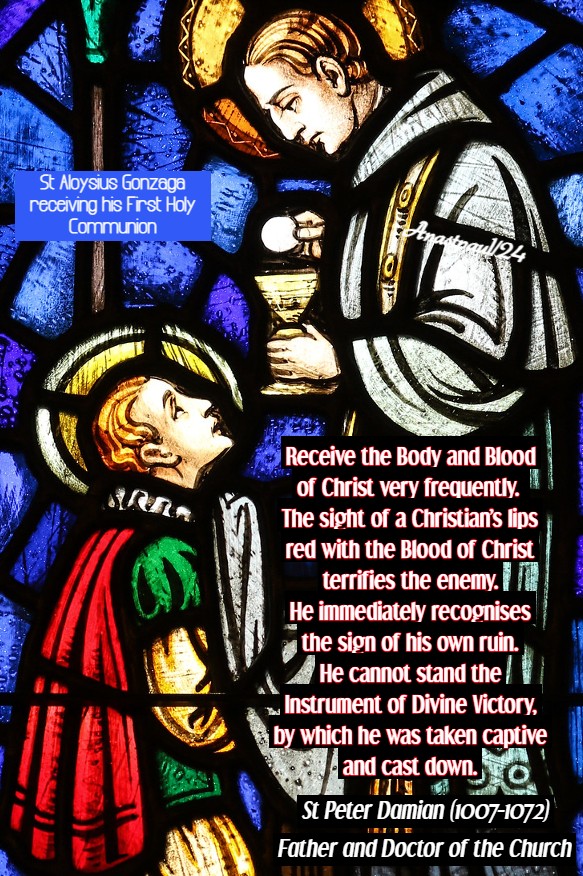

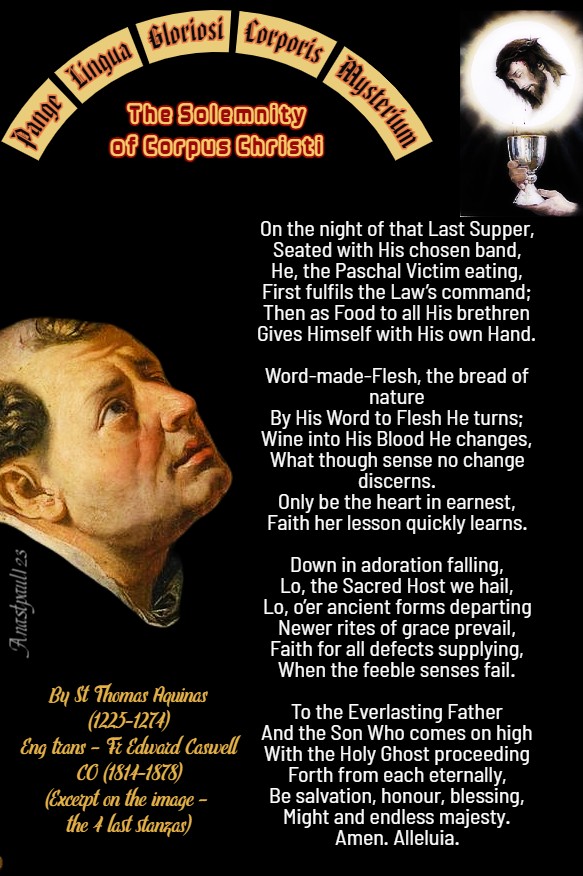

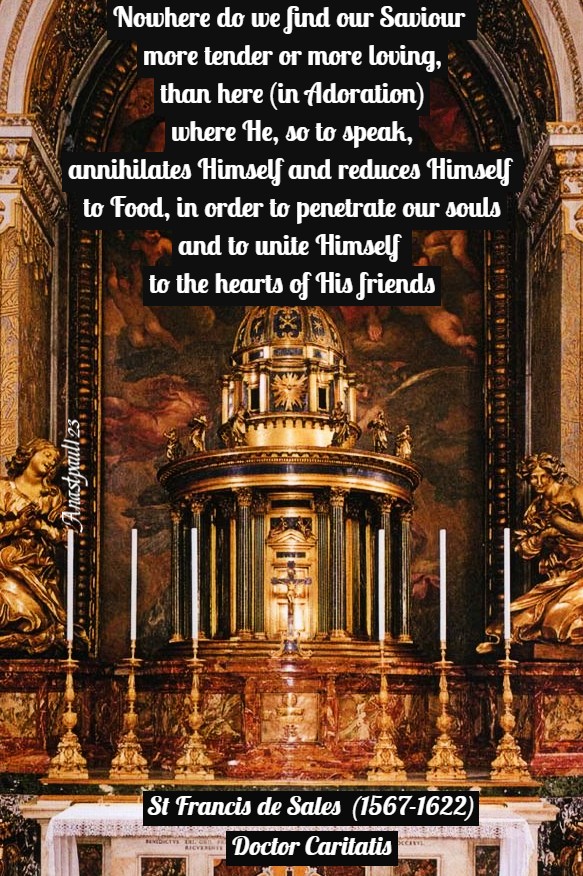
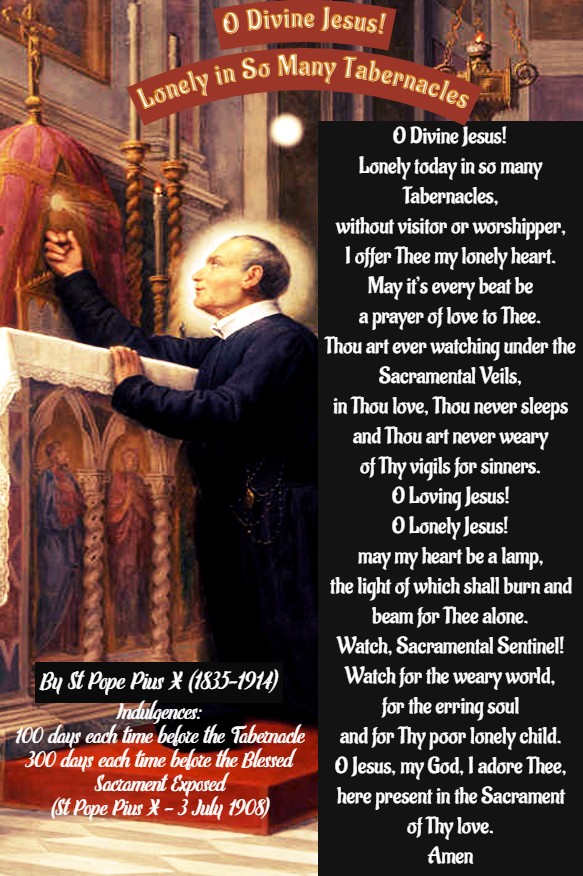

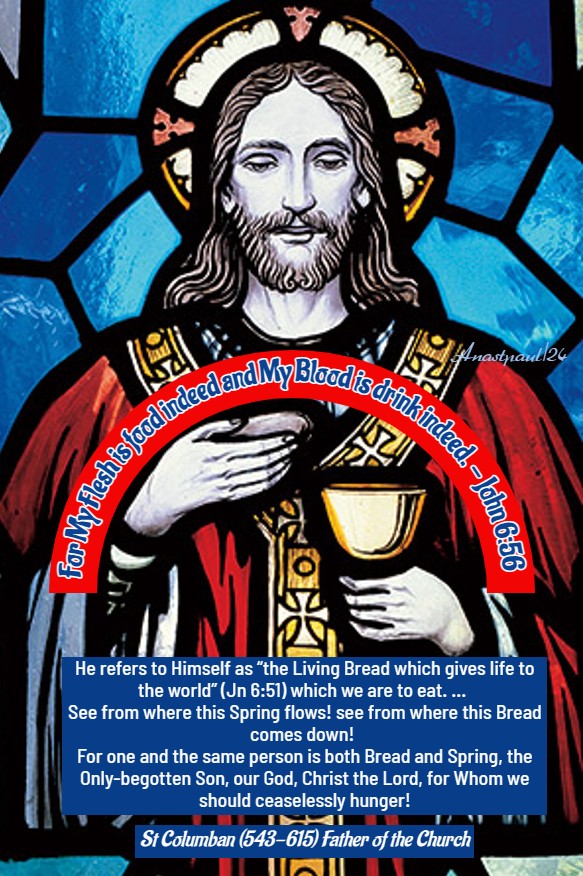


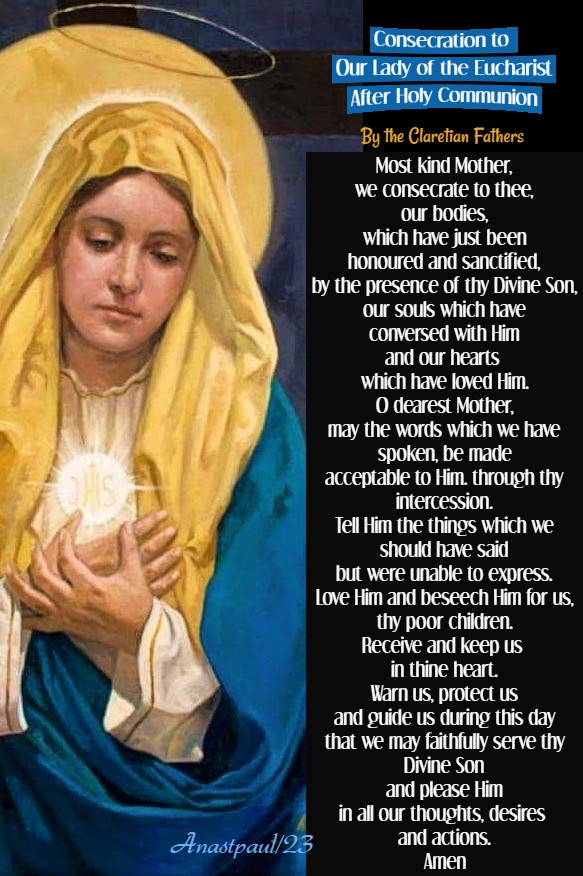



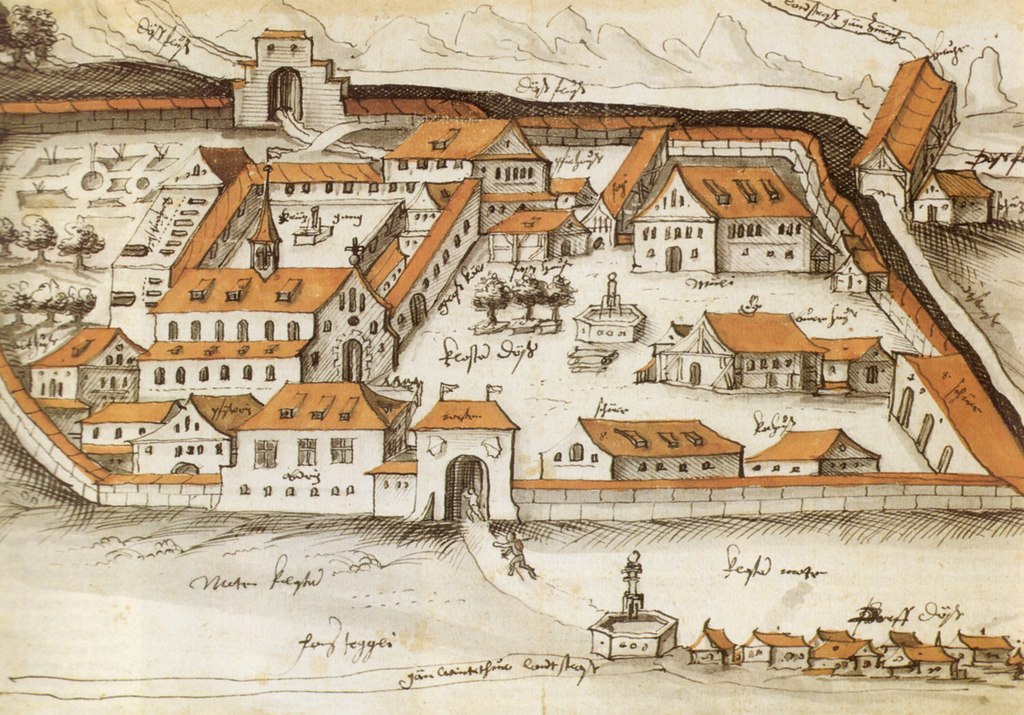




You must be logged in to post a comment.